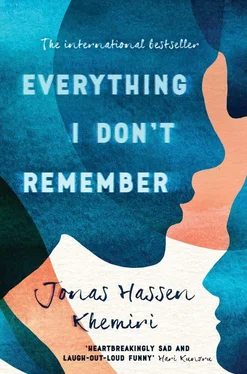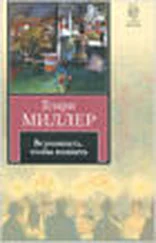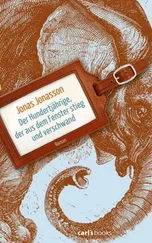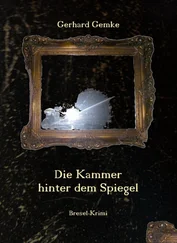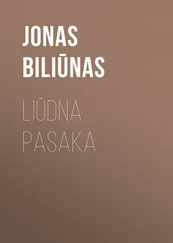“Fine,” I said, nodding.
Not that I knew exactly how he was feeling, but I understood him, I got what he was trying to say.
“That’s kinda how I felt at my brother’s funeral,” I said. “When my mom wanted me to give a speech and say something positive.”
Samuel looked at me. I looked at him. He didn’t ask any questions. I didn’t say any more. We didn’t know each other. But something had happened. Something arose when we spoke to each other. Both of us could feel it. It was clear that we ought to be friends. We exchanged numbers on the university’s gravelly paths; we said we would be in touch, both of us knew that this was something special.
*
In her sixth email, his mom writes that she certainly understands that an author can take poetic license. But there’s a difference between the truth and extreme exaggeration. I would never dream of calling Samuel ten times a day. I’m not a “control freak.” Who told you that? Was it Panther? I don’t have a “tendency to be clingy,” especially not compared to my mom. But I did enjoy talking to my son. And there were a lot of practical matters we had to go through after the fire. But sometimes two or three days would go by and we didn’t speak at all. One time, several years ago, I was sitting at the cafe in Kulturhuset, the one on the top floor, with a view of the Hötorget high-rises and the roundabout and the crowds of people. Suddenly I caught sight of my ex-husband crossing the open square at Plattan. Which was strange, because he left Sweden after the divorce and swore he would never return. It took a few seconds for me to realize that it was Samuel. When he was little he looked like me, but with each year that passed he looked more and more like his dad. It was something about his posture. One shoulder a bit lower than the other. The way they swung their arms as they walked. I reached for my phone and called him. I didn’t want anything in particular, I just wanted to say hi. His phone rang. I saw Samuel stop. He took out his phone. He looked at the screen. Then he stuck the phone back in his pocket again. But that wasn’t so strange. Maybe he was waiting for another call. Maybe he was in a hurry. That evening I called and he answered and we talked just like we usually did. Is this perfectly everyday memory one worth keeping? Maybe not. But either way, it’s true. Unlike the rumors you seem to believe.
Sincerely.
*
On the way back to the moving truck I thought of how I had known Hamza for twelve years and Niko for fourteen. After the funeral we didn’t talk about what had happened. They tried a few times at first, mostly Niko, but Hamza too. Every time they did, I protested in a way that kept them from trying again. It was different with Samuel. I don’t know why.
Luciano watched Samuel go.
“Who’s the fag?”
“You’re the fag,” I said.
“Both of you are fags,” said Bogdan.
“Whoever doesn’t get back to work and make sure we’re done by five is the fag,” said Marre. “I have to pick up the kids from daycare.”
Bogdan closed the rear door and Marre hopped up behind the wheel. All I had to do was go up to the driver’s side and look at him for him to apologize and shove over next to the others. He knew the drill, and soon we were on the highway and had dumped the goods at a warehouse and then we drove back to Vasastan to drop off our belts and gloves and joke with Blomberg that this was our last day of work ever.
*
In her seventh and final email, his mom writes that nagging won’t change anything. Neither I nor my daughter wishes to meet with you. Not even over “a quick cup of coffee.” What we want most of all is to ask you to drop all of this. But if you do persist in moving forward, it’s important for you to change all the names and specify that in no way did I stay “in the background” after the fire. I did not have a “sudden rush of bitterness” toward either Samuel or my mother. My siblings and I simply chose to divide up the responsibilities. My eldest brother took care of the practical matters surrounding the house — contacting the authorities, the insurance company, the firefighters, and the police. My younger brother was responsible for making sure Mom felt secure at the home, he informed the staff about what had happened and tried to stop by to see Mom as often as he could to keep her calm. On the doctors’ recommendation we decided not to tell her what had happened to the house. They said it would be best if she was allowed to believe that it was still there and that she could go back if she wanted to. I was responsible for Mom’s documents. I looked for missing receipts and contracts of sale and blueprints and organized them all in carefully labeled binders. But as usual, my efforts ended up being overshadowed. They always do. When Mom first got sick I spent a week canceling her newspaper subscriptions, paying her bills, and doing her taxes. At the same time, my youngest brother stopped by and replaced a bulb in an Advent star lamp. Then he hung it up in the dining-room window and Mom talked about that star for several weeks.
“It hangs so perfectly in the window and it gives just the right amount of light and your brother even said he can install a timer on it! He’s quite the little electrician. I never saw the like. What would I do without him?”
At the same time, I was taking care of all her financial matters and I hardly got a thank you in return. Apparently that was nothing compared to the time my brothers came by the home and took her to Kista to eat at a drive-in McDonald’s. They had banana milkshakes! And ate apple pie! To hear her tell it, her beloved sons had invented milkshakes, drive-in restaurants, the road, the sky, and the air around them as they sat there munching in the car. There are some things you’re just expected to do as a daughter. Those things always take more time. Toward the end I didn’t have as much time to visit her as my brothers did, so it was nice that Samuel had offered to take time off and drive to the hospital. I don’t feel guilty. I don’t regret anything. It was my brothers’ responsibility to keep the car in good shape. They ought to have told Samuel that the brakes were bad and the tires were worn down. If they had done that, everything would have turned out differently.
*
I waited a few days before I contacted Samuel. I thought there was no rush. I knew he was a special person because he talked to people he didn’t know as if he thought they were ace and he listened to people like he really was curious about what they had to say. And it wasn’t until later on that I got that what was special about Samuel wasn’t that he was a good or a bad listener, it was that he was an unusual listener. Because he listened without listening. Or, how about this. He listened without wanting to understand. Or he listened without caring. The most important thing for him was that he never wanted it to be quiet and there were many times I told him stuff that he didn’t seem to remember three weeks later. Other people might have gotten angry and said that he didn’t listen well enough. I thought his way of listening was perfect. You could say anything you wanted and if you told a story and it got a good reaction all you had to do was wait like six months because then you could tell it again and get almost as good a reaction the second time.
*
His mom ends her final email with a simple request: Thanks in advance for not contacting me again. [Her name.]
Panther sets out Turkish lentil soup, warms pita bread in the microwave, and says that it’s nice to see me. Was your trip okay? How long are you staying? Does it feel nostalgic to be back? The stairwell is weirdly quiet without your music. I, like, never thought I would miss a Rihanna instrumental on repeat [hums “What’s My Name?”]. How did it go with the book? It was never published, right? Does it suck to have worked on something for four years without finishing it? Here in Berlin everything is the same. The pierced bouncer with the fisting-depth ruler tattooed on his forearm still stands there outside Berghain. The little döner stand over by the zoo is still the best. That bitchy transvestite still works at Luzia. A couple new hipster places have opened in Neukölln, a few squatter apartments in Prenzlauer Berg have been shut down by the police. But how are you? Have you gotten through the worst of it? How was the funeral?
Читать дальше
